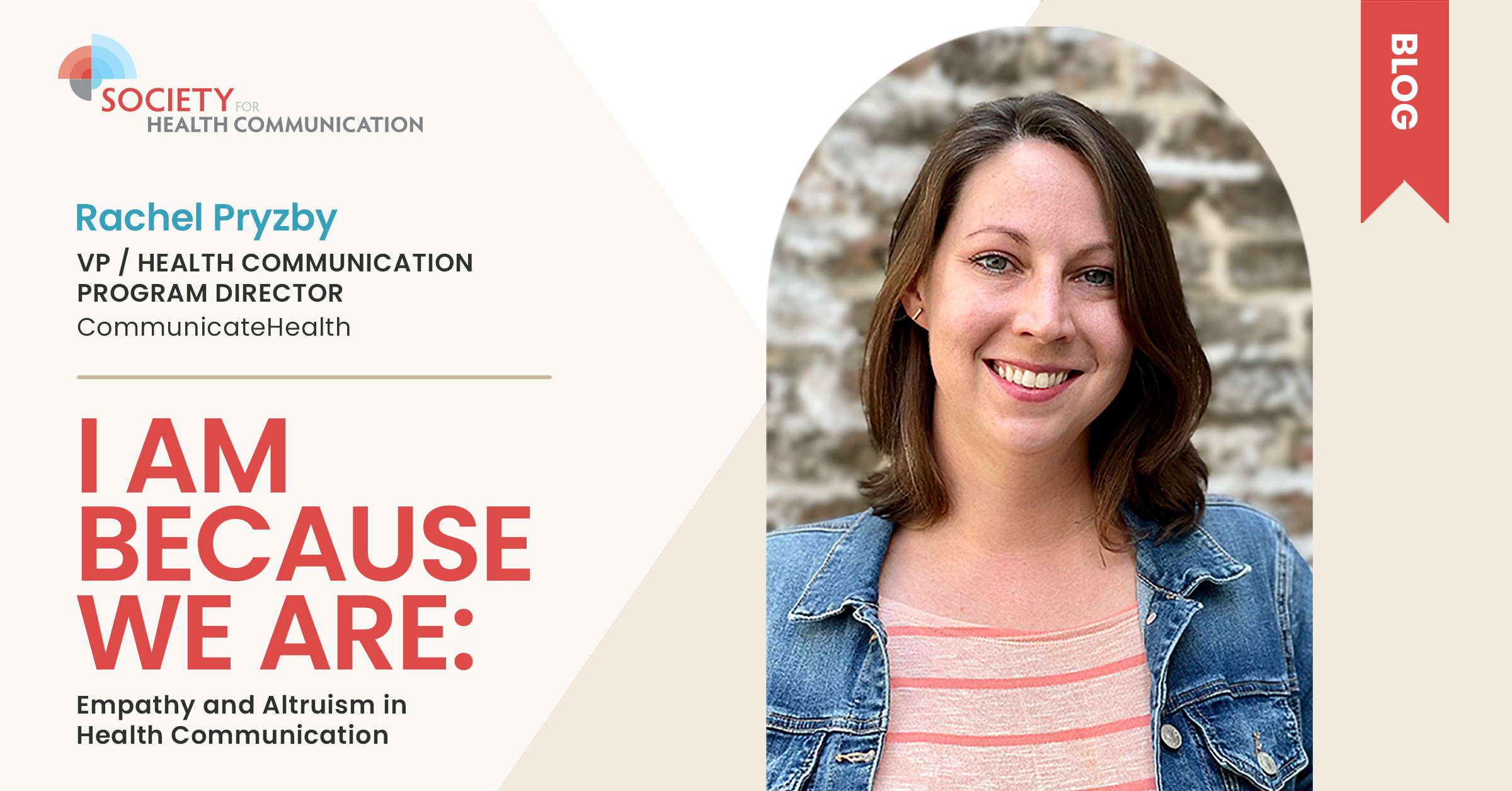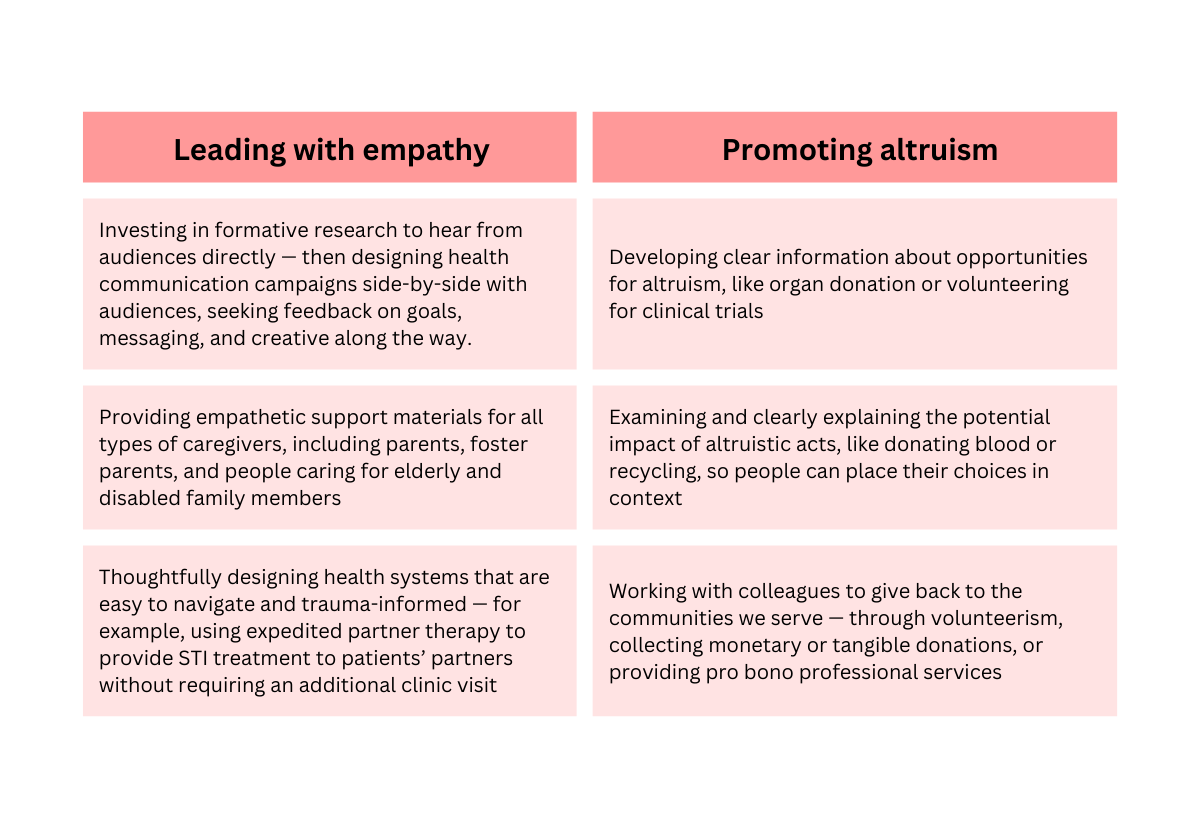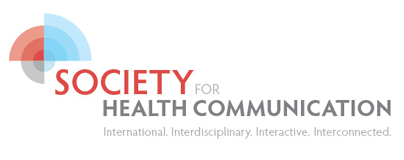I Am Because We Are: Empathy and Altruism in Health Communication

When I was an undergraduate studying abroad in South Africa, I learned about the Zulu word ubuntu, which roughly translates to “I am because we are.” It’s a simple but profound idea: we each become who we are because we’re inextricably interconnected to others around us. Ubuntu became a refrain I used to guide my choices toward the greater good: pursuing a career in public health, getting involved in political activism, volunteering for vaccine clinical trials, and most recently, donating a kidney to a stranger.
Donating an organ to a someone you don’t know is also called “nondirected” or “altruistic” donation. Lots of people have asked what motivated me to donate a kidney — incorrectly assuming I must have a loved one in need. The real reason I donated is simple: thousands of people on the transplant waitlist die every year waiting for a kidney, yet most of us have two perfectly good ones. This was a way for me to set empathy and altruism into action.
Living kidney donation is a life-saving act of altruism. You can donate a kidney to someone you know, or to a stranger in need. Kidney transplants from living donors generally have better outcomes for the recipient, and donors can go on to live normal healthy lives with 1 kidney.
Prospective kidney donors go through a simple — but thorough — evaluation process, including:
Lab and clinical tests to make sure the kidneys and other organs are healthy
Meetings with a nephrologist (kidney doctor), surgeon, social worker, and living donor advocate
The whole process is completely free for donors. Learn more about living kidney donation at KidneyRegistry.org.
As a health communicator, I think a lot about empathy. After all, health communication is a social science rooted in empathy — we need to understand our audiences’ perspectives so we can effectively communicate with them. Navigating health issues like kidney disease can be overwhelming, confusing, and scary — but health information doesn’t have to be. To make sure our audiences get the information they need when they need it, health communicators learn about our audiences’ questions, worries, misconceptions, and motivators. Then we craft empathetic messages and materials that help people make informed decisions about their health. Empathizing with our audience isn’t just a quick step in a project timeline — it’s the whole job.
Practicing empathy makes us more effective communicators and can promote altruism. There are many ways health communicators can approach our work with empathy and altruism:

The best altruistic acts are specific and intentional to maximize their impact.To put it in health communication terms, it’s great to launch an organ donation promotion campaign — but it’s much better to launch a campaign that’s been designed with empathy, tested with the intended audience, and has the resources to succeed. As a field, we can model and promote effective altruism by leading with empathy.
